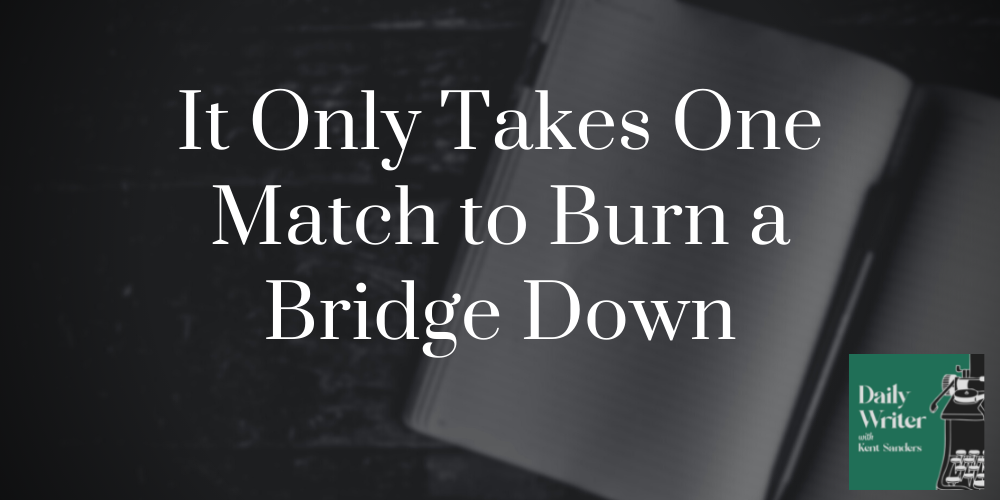This is the sixth entry in our mini-series on dealing with rejection.
When your writing has been rejected—or at least, when you perceive that it has—you respond emotionally. And that’s totally natural. We all respond emotionally when we’re hurt.
And what do we do when we’re hurt? We lash out. We want retribution. We find a way to strike back.
Here’s a mistake you want to avoid, though. Don’t lash out on social media or elsewhere in public. It could also be a blog, podcast, speech, or some other medium. The point is: don’t say anything to burn a bridge.
Unless you have an extremely good reason, you shouldn’t publicly criticize an individual or an organization. You will look petty and vindictive, you will damage relationships, you will create tension, you will probably harm future prospects and opportunities, and you will repel people with your negativity.
Some people do make a living criticizing others. Lots of pundits, YouTubers, and podcasters base their whole platform on what they are against, instead of what they are for. That’s certainly your choice if you want to take that approach, but I don’t recommend it.
Instead, here is what I DO recommend: vent somewhere in private. This is what good friends, therapists, and journals are for. But for goodness’ sake, don’t say something you will regret. In our age of instant worldwide communication, you can ruin your whole career with just a few sentences. This is exactly what Roseanne Barr did a few years ago when she got herself fired from the revival of her own TV show “Roseanne” when she posted a critical and racially insensitive tweet.
Remember, it only takes one match to burn down a bridge. In the moments when you feel like venting, hold your tongue. The damage you will do is not worth it.
Daily Question: When is the last time you said something you later regretted? What did that moment of satisfaction cost you?

